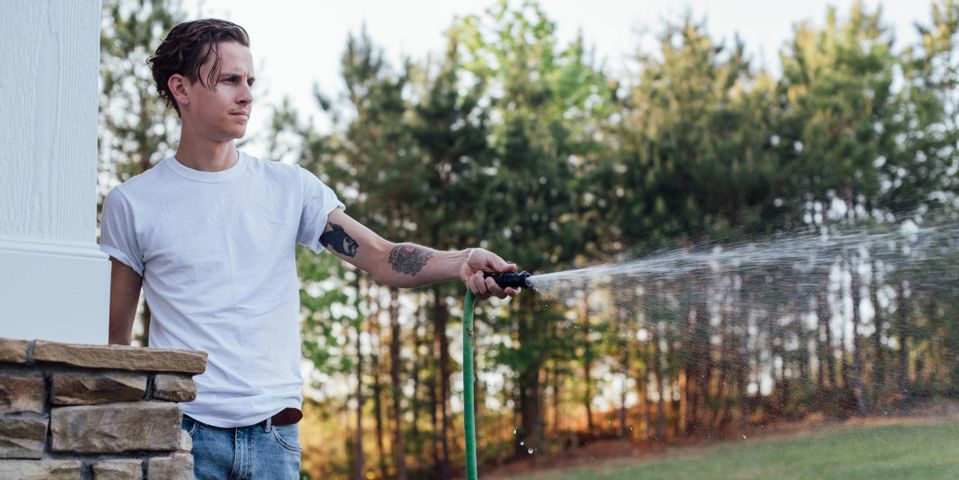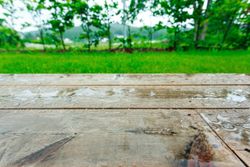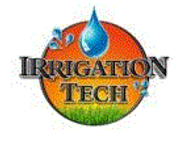5 Lawn Watering Mistakes You May Be Making

As a plant, grass needs water to survive and provide a lush landscape. But grass doesn’t just need water—it needs to be watered the right way, usually with the help of a lawn irrigation system. To help you keep your yard healthy, here are a few common watering mistakes and how you can avoid them.
5 Wrong Ways to Water Your Lawn
1. Relying on a Hose
Hoses will technically get water to the lawn, but not in the most effective way. When using a hose, it’s common for people to over water one area while under watering another. Lawn irrigation systems, on the other hand, are set up to provide even coverage over the entire yard with the help of sprinkler heads.
2. Over or Under Watering
When you over water a lawn, the grassroots will remain shallow and prevent it from growing the way it should. Too much water can also burden a lawn and welcome other problems—such as fungal growth or soil erosion. By contrast, under watering will deprive your grass of essential nutrients, causing it to wilt, go dormant and die.
The irrigation needs of your lawn can vary based on the type of soil it is growing in. Rochester has quite a bit of clay based soils. Clay should almost never be watered daily. Even when hot and dry, clay needs a dry-out day between waterings. The only exception being syringe cycles. These are very short (2-5minute) run times during the heat of the day (between noon-3pm) meant to cool the grass plant not to water the soil. This will help discourage dormancy in the hot summer months.
Sandy soils on the other hand CAN be watered daily but only during the hot, dry portion of summer. in the heat of the summer, water can be leaving sandy soil so quickly that in 48 hours, there is absolutely no water left in the root zone. the result will be dormancy or death. Outside of the hottest driest times of year, feel free to stretch to every second or third day for sand.
3. Ignoring the Weather
 If you use an automatic watering system, don’t let it run when it’s already raining outside. To avoid over watering, install a rain sensor or soil moisture sensor. This will allow the irrigation system to know without input from you to turn off after rains. The system will also know when it is appropriate to run again after things dry out. Another option is a weather based controller. These controllers are linked through wifi to local weather stations. With the information gathered from the weather stations, the controller adjusts it’s program. Run times are increased if weather is hot and dry. Run times are decreased or eliminated if weather is cool and/or rainy.
If you use an automatic watering system, don’t let it run when it’s already raining outside. To avoid over watering, install a rain sensor or soil moisture sensor. This will allow the irrigation system to know without input from you to turn off after rains. The system will also know when it is appropriate to run again after things dry out. Another option is a weather based controller. These controllers are linked through wifi to local weather stations. With the information gathered from the weather stations, the controller adjusts it’s program. Run times are increased if weather is hot and dry. Run times are decreased or eliminated if weather is cool and/or rainy.
4. Timing It Wrong
When you water your grass will impact how much moisture actually gets to the root zone. If you water in the afternoon or day, heat and breezes may cause the moisture to evaporate too fast or not even reach the soil and roots. By contrast, watering in the night can cause moisture-related problems like fungus. Ideally, it’s best to water in the morning close to dawn when it’s cool enough to minimize evaporation risks and the winds are usually low at this time of day.
5. Watering Every Time Grass Wilts
Wilting can sometimes be a sign that your grass is thirsty—but not always. Wilting during hot days is fairly normal and not a sign that extra moisture is needed. Grass and all plants for that matter can also wilt when over watered. It’s a good idea, if unsure, to stick a finger into the soil so see why your plants are wilting. If the soil is dry, water if already wet please don’t because watering plants that are already waterlogged is a sure way to a speedy death.
When you don’t want to take chances with your watering technique, turn to the experts at Irrigation Tech in Rochester. Offering sprinkler system installations throughout the Finger Lakes community, this team will equip your landscape with reliable irrigation equipment to nourish your grass. Well-versed in the various needs of lawn care, these specialists can also help program your system to streamline the watering process. Visit this local business online to learn more about their lawn irrigation systems or call (585) 225-0380 to request an estimate.
About the Business
Have a question? Ask the experts!
Send your question

